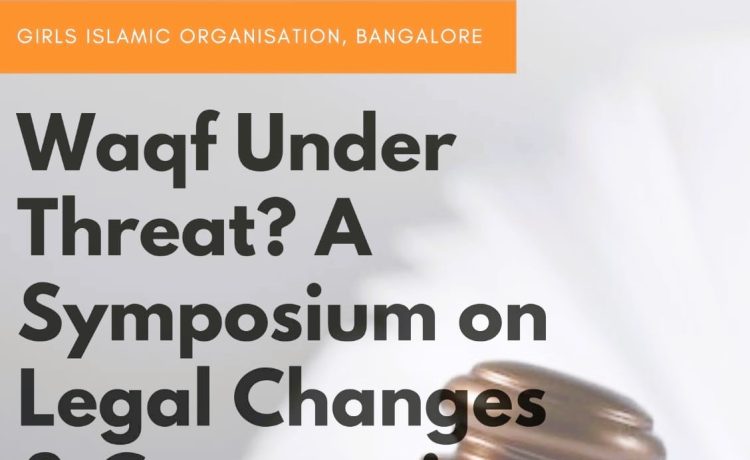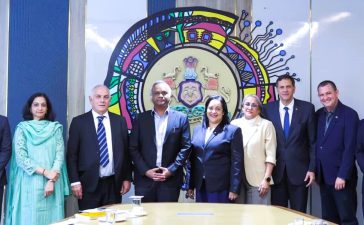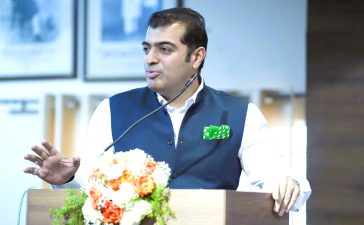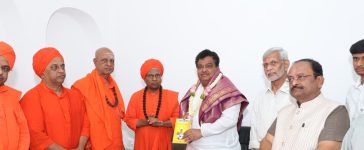Waqf Under Threat? Symposium Highlights Legal Changes & Community Concerns
Bangalore, July 6, 2025 – A city-level symposium titled “Waqf Under Threat? Legal Changes & Community Impact” was held at BIFT Hall, Darus Salam Building, to address growing concerns over recent legislative developments affecting Waqf properties in India. Organized by the Girls Islamic Organisation (GIO), Bangalore, the event brought together legal experts, community leaders, and activists to dissect the implications of the proposed Umeed Act 2025 and its potential impact on Muslim endowments.
Historical Roots & Legal Challenges
The symposium opened with a detailed historical overview by Ismail Quadri, Zonal Advisory Council Member of SIO Karnataka, who traced the origins of Waqf in India and its foundational role in Islamic philanthropy.
“Waqf is not merely about land or assets—it is a sacred trust meant to serve education, healthcare, and social welfare,” Quadri explained. “The Waqf Act of 1955 was designed to protect these institutions, but the Umeed Act 2025 threatens to dismantle this system under the guise of reform.”
He highlighted constitutional concerns, arguing that the proposed law violates Articles 14 (equality before law), 15 (prohibition of discrimination), 25 (freedom of religion), and 26 (right to manage religious affairs). “The vague language of the Act masks a deeper agenda—centralizing control and diluting community autonomy,” he warned.
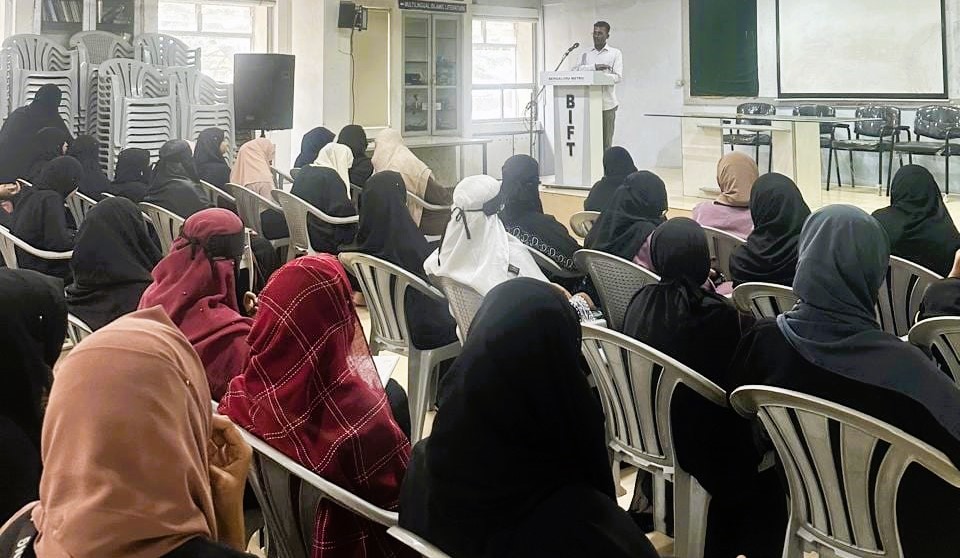
Waqf as a Social Lifeline
The second session, led by Laeequllah Khan Masoori, Nazim-e-Ilaqa of Jamaat-e-Islami Hind, Mandya, shifted focus from legalities to the social impact of Waqf.
“Waqf is a divine institution meant to uplift the marginalized,” Masoori asserted. “From funding schools to shelters, its purpose is being undermined by policies that prioritize state control over community welfare.” He urged attendees to “awaken, question, and act” to protect these institutions.
An interactive intermission encouraged participants to engage in discussions, fostering unity and collective reflection on the challenges ahead.
Voices from the Community
Several attendees, particularly young women, shared their perspectives on the importance of Waqf education.
“Before today, I didn’t fully grasp how Waqf sustains our community’s needs,” said Ayesha Rahman, a college student. “Learning about its legal and social dimensions has been eye-opening—we must safeguard it for future generations.”
Fatima Khan, another participant, added, “Knowledge is power. Understanding these laws helps us resist unjust changes.”
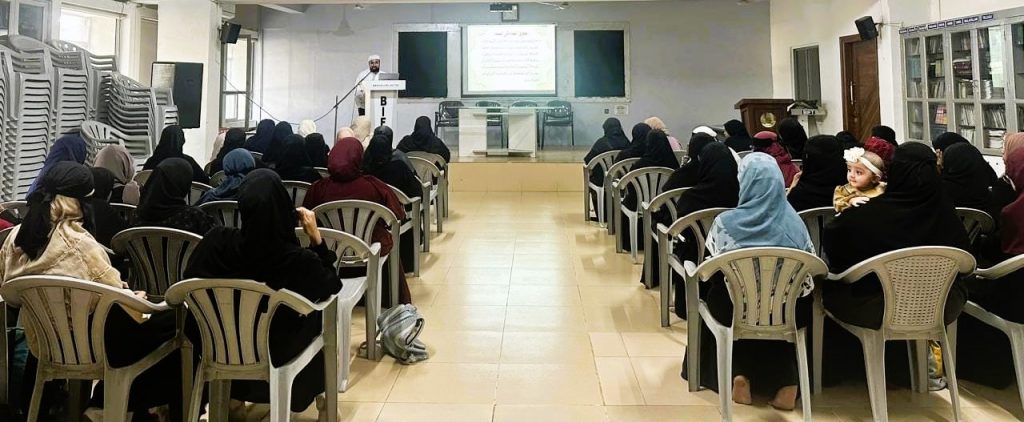
A Call to Action
The symposium concluded with a powerful reminder of Nelson Mandela’s words: “Education is the most powerful weapon which you can use to change the world.” Organizers emphasized the need for awareness, legal literacy, and proactive resistance to preserve Waqf as a pillar of social justice.
Key Takeaways:
-
Umeed Act 2025 risks eroding Waqf autonomy under the pretext of reform.
-
Constitutional safeguards for religious and minority rights may be undermined.
-
Waqf’s role extends beyond property—it is a vital source of education, healthcare, and social welfare.
-
Community mobilization and legal awareness are crucial in defending these institutions.
The event served as both an educational platform and a rallying cry, urging citizens to stay informed and engaged in protecting their religious and social endowments.
Key Quotes:
-
Ismail Quadri (SIO Karnataka):
“The Umeed Act 2025 is a wolf in sheep’s clothing—claiming reform while stripping Waqf of its autonomy. We must challenge this legally and socially.” -
Laeequllah Khan Masoori (Jamaat-e-Islami Hind):
“Waqf is not just property; it is a sacred trust for education, healthcare, and shelter. If we remain silent, we risk losing a system that has sustained our community for centuries.” -
Ayesha Rahman (Student Attendee):
“I never realized how deeply Waqf impacts our lives until today. If these laws change, our schools, clinics, and shelters could disappear.” -
Fatima Khan (Symposium Participant):
“Knowledge is our shield. The more we learn about Waqf laws, the better we can defend them.” -
GIO Bangalore Spokesperson:
“This symposium was not just about awareness—it was a call to action. The Ummah must unite to protect what is rightfully ours.”
![]()

